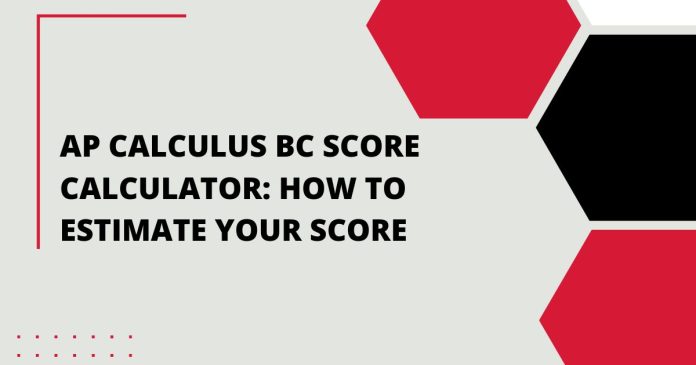If you’re a student preparing for the AP Calculus BC exam, you might be curious about how your performance on the test will translate into a final score. The AP Calculus BC exam is challenging, covering a wide range of calculus topics, and knowing where you stand is essential. In this article, we’ll explore an AP Calc BC score calculator, discuss how it works, and provide you with tips to improve your chances of getting a high score. Let’s dive in!
Understanding the AP Calculus BC Exam
Before we delve into the score calculation, let’s briefly review the AP Calculus BC exam. This advanced placement exam is designed to test your understanding of both differential and integral calculus. It’s a comprehensive assessment that covers topics like limits, derivatives, integrals, series, and more. The exam consists of multiple-choice questions, free-response questions, and a calculator-active section.
How Does the AP Calc BC Score Calculator Work?
The AP Calc BC score calculator is a valuable tool that can give you an estimate of the score you might receive on the exam based on your performance during practice tests or mock exams. It takes into account the different question types and weights them based on the exam’s structure. Here’s how it generally works:
Step 1: Input Your Raw Scores
To use the calculator, you’ll need to input your raw scores for both the multiple-choice and free-response sections. The calculator will take these scores as inputs to estimate your final score.
Step 2: Calculate the Scaled Score
The calculator uses a conversion formula to transform your raw scores into a scaled score. This scaled score is what colleges and universities use to determine your AP exam performance.
Step 3: Estimate Your Final Score
The scaled score is then mapped to the 1-5 AP scale. This scale represents the final scores, with 5 being the highest. The calculator provides an estimate of where your final score might fall.
Tips to Improve Your AP Calculus BC Score
Now that you understand how the score calculator works, here are some valuable tips to help you improve your AP Calculus BC score:
- Practice Regularly: Consistent practice is key to success in calculus. Work through practice problems, take mock exams, and review your mistakes.
- Master Key Concepts: Focus on understanding fundamental calculus concepts. Make sure you’re comfortable with limits, derivatives, integrals, and series.
- Time Management: The AP Calculus BC exam is time-sensitive. Practice managing your time effectively during practice tests to ensure you can complete all sections.
- Use Resources: Utilize review books, online resources, and AP review courses. These resources can provide additional practice and clarification on challenging topics.
- Stay Confident: Believe in your abilities. A positive mindset can make a significant difference in your performance on the exam.
Conclusion
Preparing for the AP Calculus BC exam is a challenging but rewarding journey. By using the AP Calc BC score calculator and following the tips provided, you’ll be better equipped to estimate your score and work towards a successful outcome. Remember, practice, understanding key concepts, and time management are essential components of your preparation.
FAQs
- What is the passing score for the AP Calculus BC exam?
- The passing score for the AP Calculus BC exam varies by college and university. Generally, a score of 3 or higher is considered passing.
- Is the AP Calculus BC exam difficult?
- The AP Calculus BC exam is considered challenging, but with dedicated preparation and practice, you can achieve a strong score.
- Can I use a graphing calculator on the AP Calculus BC exam?
- Yes, the AP Calculus BC exam allows the use of a graphing calculator for certain sections. Familiarize yourself with your calculator’s functions before the exam.
- How can I review specific calculus topics for the exam?
- There are many online resources, review books, and AP review courses that focus on specific calculus topics. Choose the resources that align with your needs.
- When is the best time to start preparing for the AP Calculus BC exam?
- It’s best to start preparing several months before the exam date. This allows you to cover all the material, practice consistently, and build confidence.

